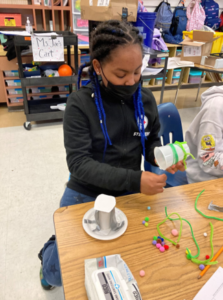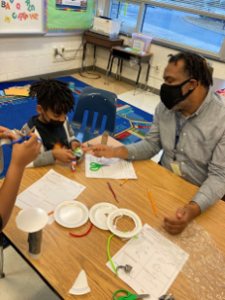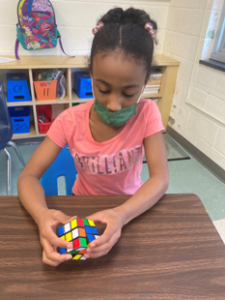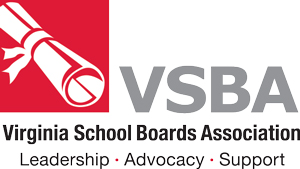Henrico County Public Schools Kids of Promise Pilot
 The Problem: Underrepresentation of Gifted Students
The Problem: Underrepresentation of Gifted Students
A study of 10,000+ elementary schools conducted by Vanderbilt University found that Black students are 66% less likely and Hispanic students are 47% less likely than white students to be placed in gifted programs. In New York City, while Black and Hispanic students comprise 65% of the elementary school population, they make up only 27% of the elementary gifted population. In Henrico County Public Schools, 46.6% of students are Black or Hispanic but only 17.2% are identified as gifted. During the past school year, only 6 students were identified as gifted at Laburnum Elementary.
Failure to identify students with potential often leads to stressful school environments in which bright students become bored, lack motivation and participate in disruptive classroom behaviors. Additionally, social-emotional problems may result as well as misdiagnosis of attention disorders and reduced economic opportunities later in life.
A New Approach: Growing the Pie
A 2019-20 audit of the HCPS K-12 Gifted Plan conducted by Dr. Jonathan Plucker, Professor of Talent Development at Johns Hopkins University, included reflection of current practices and policies and resulted in the creation of a new theme—“Growing the Pie.” In order for Henrico to make significant and impactful changes to gifted programs, the district must incorporate practices that expand current services and programming to address inequities and disproportionality. “Growing the Pie” will allow more Henrico students to develop their gifts and gain access to services and advanced coursework.
The Pilot Program—Closing the Gap
HCPS and the Henrico Education Foundation have collaborated to provide a pilot project at Laburnum Elementary that includes:
- Identifying and recruiting under-represented students of promise for the 21st CCLC program
- Forming 3rd and 4th-grade cohorts from families at or below the poverty line to experience high-quality STEAM and SEL programming integrated into the school’s 21st CCLC after school program
- Highly qualified teachers as well as counselor/mentors trained in social-emotional learning
- Quarterly meetings with grant and school staff to assess student progress and differentiate programming as appropriate
 HCPS Provides:
HCPS Provides:
- 2 hours of enrichment/SEL daily Monday-Thursday for students as a 21st CCLC vendor
- Training of gifted staff
- Curriculum/Content
- Transportation (grant partnership)
- School Nutrition support (grant partnership)
- Technology support
- Data collection and sharing
Henrico Education Foundation Provides:
- Contract/MOU with HCPS as a vendor to provide 2 hours of enrichment/SEL daily Monday-Thursday for Promise students
- Program infrastructure to support the delivery of pilot programming
- Enrichment and recreation (21st CCLC)
- Field trips (21st CCLC)
- Collaboration in evaluation and assessment of pilot success
Program enrichment areas include Chess, Rubik’s Cube, Design Inquiry, and STEAM/Coding. The selection of enrichment programs was based on extending the classroom opportunity. Selected activities give students the ability to participate in furthering their learning outside of the classroom. For instance, Chess4Life offers students the opportunity to access chess enrichment from their classroom computers, home computers, or phones. This safe online program is available to students at any time – after school, on weekends, and during the summer. In addition, Code VA invites students from Title 1 schools to participate in all programming – both virtual and in-person – at no cost. In this way, we are introducing students to advanced enrichment opportunities with fewer barriers.
Chess Benefits
Chess provides a wealth of academic, social and emotional benefits. These benefits include increased cognitive skills such as concentration, pattern recognition, decision making, problem-solving and critical thinking. Researchers state that chess increases student self-confidence and attention span while encouraging understanding of choice and consequences for problem-solving. Benefits that support the social and emotional needs of the gifted include increased resilience, improved communication skills, and an increase in empathy and self-awareness.
STEAM Benefits
STEAM education fosters ingenuity and creativity, builds resilience, encourages teamwork and collaboration, teaches problem-solving, and encourages flexibility. Specific to the needs of the gifted student, STEAM activities support acceptance of failure, increase critical thinking skills, and improve communication and leadership abilities.
This program will focus on problem-based learning and will lead to higher-level discussions about how technology can provide solutions to real-world issues.
 Rubik’s Cube Benefits
Rubik’s Cube Benefits
Participating in Rubik’s Cube activities has benefits that align with STEAM education goals. These benefits include improving muscle memory through the use of algorithms, increasing perseverance and resilience, enhancing problem-solving skills, improving agility and reflexes, and increasing determination and focus. In regards to supporting gifted attributes, solving the cube helps develop cognitive abilities, enhances the ability to work under pressure, and improves concentration.
Design Thinking Benefits
Design Thinking allows students to address real-world problems using authentic tools to arrive at meaningful solutions. Students learn a five-stage process that emphasizes the need to understand and empathize with the audience you are designing for, and the importance of building and testing prototypes as part of the design process. As a human-centered, solutions-focused approach to creativity and design, design thinking allows students to develop analytical skills, self-awareness, understanding of others’ situations and needs, and empathy.
The overall long-range plans of the program are to replicate and expand the program based on additional funding. It is our hope that by providing these challenging experiences, there will be a systemic shift in the identification of our underserved gifted, and talented students.
